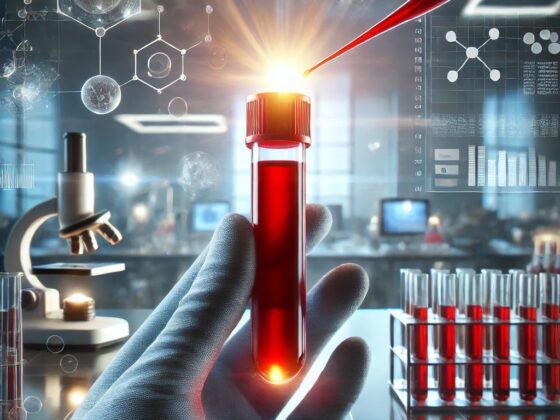Vitamins and minerals are crucial for maintaining health and optimal functioning of our bodies. Deficiencies or imbalances can lead to a variety of health issues. ALLIANCE™ offers comprehensive vitamin and mineral testing services to help you understand your nutritional status and take steps towards better health. So what are the nutrients we test for and what impact do they have on your health?
Vitamin B12
Vitamin B12 is essential for energy production, brain function, and cell metabolism. It plays a key role in forming red blood cells and maintaining a healthy nervous system, crucial for DNA synthesis and cell function, especially in blood and nerve tissues.
Testing for B12 levels helps diagnose conditions like pernicious anemia and megaloblastic anemia, and assess issues related to malabsorption and neurological disorders. In cases of suspected deficiency, homocysteine and methylmalonic acid tests are used to detect issues even when B12 levels appear normal.
Where to find Vitamin B12?
- Meat: Beef, liver, and chicken.
- Seafood: Salmon, trout, tuna, and sardines.
- Dairy Products: Milk, cheese, and yogurt.
- Eggs: Particularly the yolks.
Since there are no plant sources of B12, it puts vegetarians and vegans at a higher risk of developing a vitamin B12 deficiency.
Vitamin D 25-OH
Vitamin D 25-OH is the major circulating form of vitamin D. Vitamin D is crucial for bone health and calcium absorption. It also influences immune function and has been linked to mood regulation and disease prevention.
Where to find Vitamin D 25-OH?
The most natural way to get vitamin D is through exposure to sunlight. When your skin is exposed to sunlight, it produces vitamin D naturally. There are dietary sources of vitamin D as well:
- Fatty Fish: Salmon, mackerel, and sardines.
- Fortified Foods: Milk, orange juice, and cereals.
- Mushrooms: Especially varieties treated with UV light.
Folate (Vitamin B9)
Folate is essential for DNA synthesis and repair, making it crucial during periods of rapid growth such as pregnancy and infancy.
Most useful when ordered with vitamin B12 and red cell folic acid.
Where to find folate?
- Green Leafy Vegetables: Spinach, kale, and Brussels sprouts.
- Fruits: Citrus fruits, bananas, and avocados.
- Legumes: Beans, peas, and lentils.
- Nuts and Seeds: Particularly sunflower seeds and almonds.
- Fortified Grains: Many cereals and some breads have added folate.
Iron and TIBC (Total Iron-Binding Capacity)
Iron is vital for many biological functions, primarily for forming hemoglobin, the protein in red blood cells that carries oxygen. This test aids in the evaluation of a number of conditions involving red cell production and destruction, iron metabolism, or iron transport.
Increased total iron binding capacity is often seen in iron deficiency states, parental iron administration, pregnancy without iron supplements, and hepatitis or hepatic necrosis. Decreased concentrations are often seen in chronic disorders, kwashiorkor, chronic iron overloading, and malignancies.
Ferritin
Ferritin reflects iron stores in the body and is critical for transporting oxygen in the blood.
It helps to evaluate microcytic anemia, iron storage diseases, iron metabolism disease. Useful for the differential diagnosis of anemia of chronic disease (ACD) versus iron deficiency anemia.
Where to find iron?
- Red Meat: Beef and lamb are excellent sources.
- Poultry: Chicken and turkey, especially dark meat.
- Seafood: Oysters, clams, and mussels.
- Legumes: Lentils and chickpeas.
- Leafy Greens: Spinach and Swiss chard.
- Fortified Foods: Iron-fortified cereals and breads.
Zinc
Zinc is important for immune function, wound healing, DNA synthesis, and cell division.
It also contributes to hormone production, including testosterone, which is important for reproductive and overall health.
Where to find zinc?
- Meat: Beef, pork, and lamb.
- Seafood: Oysters, crab, and lobster.
- Dairy Products: Milk and cheese.
- Legumes: Chickpeas, lentils, and beans.
- Nuts and Seeds: Pumpkin seeds, cashews, and almonds.
Specimens required for Vitamin and Mineral Testing:
1 dark blue
1 speckled top tube
1 lavender tube
1 green top tube
1 plain red tube
Why Test for Vitamins and Minerals?
Nutrient deficiencies can be subtle or asymptomatic until they become severe. Testing helps identify these deficiencies early, allowing for timely dietary adjustments or supplementation to prevent complications. Additionally, testing can support individuals with specific health concerns or dietary restrictions and can assist healthcare providers in managing various health conditions.
Conclusion
At ALLIANCE™ , we are committed to providing you with accurate and actionable health insights through our comprehensive vitamin and mineral testing services. Whether you are experiencing symptoms of deficiency, undergoing health changes, or simply aiming for a healthier lifestyle, our tests can provide you with the information you need to make informed decisions about your health. Take charge of your health by understanding your nutritional needs through precise and reliable testing.

